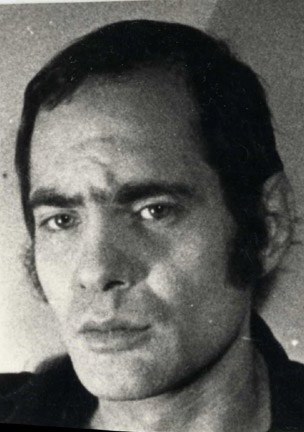2010年考研英语小作文跑题了。。
 三事
三事2010年考研英语小作文题型 今年是不是加了新题型????
 大美
大美 洛杉矶
洛杉矶
恩,是啊。摘要就是一段中文,让你写一个英文的摘要。那段的中文中心内容好归纳,但要表达成英语就不容易了。主要还是考查词汇,句子表达等写作能力。摘要由于范围太大,没法押题,而且没法用模板句子。所以难度比书信大点。这次英语一考摘要的几率大于英语二。当然命题中心可能反押题,就不会出。总之很难说,全面准备吧。不会的,都只是说说而已。10年的英语小作文肯定还是考书信,你现在就把书信常考的几种类型掌握好了就行。要知道,人都是有隋性的,老师也一样。如果写的是摘要,不是人为的增加阅卷难度吗?大作文仍旧是看图说话,时间不多了,好好复习吧。
2010年考研英语小作文偏题了怎么判分
 能侗然乎
能侗然乎 背若泰山
背若泰山
只要填满了,就不会判零分的,估计3、4分吧,我考的时候,也是书信,最后没落款,给了5分,当然我的内容也不咋地。你还是安心考下场吧,安心备考,明天可不要再犯同样的错误了。放心吧 只会扣格式分 大概扣3分 内容对的话不会扣很多的我就杯具了 写成邀请别人来参加会议 估计我这才是0分的料。。。。哎。。。。难道今年要挂在这个小作文上了吗
考研英语小作文字数要求
 诗
诗2010考研英语作文跑题?
 冥冥之中
冥冥之中 假有
假有
我的英语作文写得也是一塌糊涂,我就没啥词汇把那幅图给描绘出来,而是用我会的有限的几个词大概写了几句,还出语法错误了,我也没围绕他给的“文化火锅营养又美味”写,而是分成正反两方面写了,我估计走题概率很大呀,我都担心死了,前面选择已经惨不忍睹了,作文还考得那奶奶样,现在只能巴望着学校的分数线出现史上最低的情况了,不过估计这样的金砖是砸不到我的。不过我觉得你写得角度很新颖啊,要是你英语表述再出彩,那些个阅卷老师应该会喜欢的,我就听很多老师那样说啊,语言有时候比你的意思重要!只可惜我是个英语白痴,想说啥就没啥词呀,唉唉唉。。。。。。
考研英语小作文liming 写自己名字
 莫妮卡
莫妮卡 栗子树
栗子树
没事,不会把你的分数扣完的,因为老师也不知道你写的是谁的名字。这个完全放心,一般老师是不会给零分的,因为考研试卷中单题出现0分或者满分,阅卷老师是要写报告的,证明为什么得来的这个分数。实在的说,就是最多扣你一份,只是说你最后一步骤没有按照要求,没有别的。好好考试。祝好!The decision of the New York Philharmonic to hire Alan Gilbert as its next music director has been the talk of the classical-music world ever since the sudden announcement of his appointment in 2009. For the most part, the response has been favorable, to say the least. “Hooray! At last!” wrote Anthony Tommasini, a sober-sided classical-music critic.One of the reasons why the appointment came as such a surprise, however, is that Gilbert is comparatively little known. Even Tommasini, who had advocated Gilbert’s appointment in the Times, calls him “an unpretentious musician with no air of the formidable conctor about him.” As a description of the next music director of an orchestra that has hitherto been led by musicians like Gustav Mahler and Pierre Boulez, that seems likely to have struck at least some Times readers as faint praise.For my part, I have no idea whether Gilbert is a great conctor or even a good one. To be sure, he performs an impressive variety of interesting compositions, but it is not necessary for me to visit Avery Fisher Hall, or anywhere else, to hear interesting orchestral music. All I have to do is to go to my CD shelf, or boot up my computer and download still more recorded music from iTunes.Devoted concertgoers who reply that recordings are no substitute for live performance are missing the point. For the time, attention, and money of the art-loving public, classical instrumentalists must compete not only with opera houses, dance troupes, theater companies, and museums, but also with the recorded performances of the great classical musicians of the 20th century. There recordings are cheap, available everywhere, and very often much higher in artistic quality than today’s live performances; moreover, they can be “consumed” at a time and place of the listener’s choosing. The widespread availability of such recordings has thus brought about a crisis in the institution of the traditional classical concert.One possible response is for classical performers to program attractive new music that is not yet available on record. Gilbert’s own interest in new music has been widely noted: Alex Ross, a classical-music critic, has described him as a man who is capable of turning the Philharmonic into “a markedly different, more vibrant organization.” But what will be the nature of that difference? Merely expanding the orchestra’s repertoire will not be enough. If Gilbert and the Philharmonic are to succeed, they must first change the relationship between America’s oldest orchestra and the new audience it hops to attract.
考研英语大作文需要写标题吗
 江雪
江雪 爱坎坷
爱坎坷
考研英语大作文需要写标题。在考研英语作文中如果规定要写标题则考试中一定要写标题,如果没有规定要写标题则最好写上,以免出错犯错扣分。硕士研究生教育按照培养目标的不同,分为学术型研究生和专业学位研究生。学术型研究生的培养目标是高层次学术研究型专门人才,专业学位研究生的培养目标是具有扎实理论基础,并适应特定行业或职业实际工作需要的应用型高层次专门人才。从2010年开始,全国硕士研究生入学考试的英语试卷分为了英语(一)和英语(二)。英语(一)即原研究生入学统考“英语”,所有学术型硕士研究生(十三大门类,110个一级学科)和部分专业型硕士(法律硕士、临床医学硕士、口腔医学硕士、建筑学硕士、护理硕士、汉语国际教育硕士、公共卫生硕士等)必考英语(一)。英语(二)主要是为高等院校和科研院所招收不考英语(一)的专业学位硕士研究生而设置的具有选拔性质的统考科目。扩展资料:英语考试是为高等学校和科研机构招收硕士研究生而设置的具有选拔性质的全国统一入学考试科目,其目的是科学、公正、有效地测试考生对英语语言的运用能力,评价的标准时高等学校非英语专业本科毕业生所能达到的及格或及格以上水平,以保证被录取者具有一定的英语水平,并有利于各高等学校和科研院所在专业上择优选拔。考研英语考试形式为笔试。考试时间为180分钟。满分为100分。试卷分试题册和答题卡。答题卡分为答题卡1和答题卡2.考生应将英语知识运用和阅读理解部分的答案按要求填涂在答题卡1上,将英译汉和写作部分的答案写在答题卡2上。目的是推动大学英语教学大纲的贯彻执行,对大学生的英语能力进行客观、准确的测量,为提高我国大学英语课程的教学质量服务。参考资料来源:百度百科——考研英语
求考研英语小作文求职信范文?
 暗动画
暗动画 花音
花音
Directions: You are a Business English major e to graate from Beijing University in June 2010. Write a letter of no less than 100 words to apply for a position of secretary in a company which requires the candidate master fluent English and good computer skills. Introce yourself, ask for an interview and give you contact information in the end.Dear Sir or Madam,I am applying for the position of secretary advertised in Beijing Today. I majored in Business English. My training in Business English and Secretarial English will definitely meet your qualifications.I’ll graate form Beijing University in June 2010. In addition to the required courses of my major, I’ve studied Computer as my second major. I’ve also had a part-time job as a secretary in a company for 2 years. I am confident that my qualifications and experience make me suitable for this position.I have enclosed a complete resume for detailed information. I hope you will consider me for this position. Please reach me by telephone 139……Yours sincerely,Wang Hua资料可以到学鸣网站去找http://wenku..com/view/9a2ac939376baf1ffc4fade2.html
考研英语小作文怎么总结
 理禀
理禀 恐怖屋
恐怖屋
考研英语作文其实并不像你说的那么复杂,我是过来人,就说一下我的英语大小作文学习感受吧:首先是背诵万能作文,当时我用的是考试虫的,它比较好理解,句型不是特别复杂,所以背起来比较简单。但是有一点必须做到就是对万能作文的归类,书上都有介绍,这一点特别重要,切记!!一个类型背1至2篇即可,可以减轻很大负担。其次是小作文,也要做到分类,把典型的几篇文章背会到时往上填充内容就非常容易了。总之就是“分类背诵”四个字,减少工作量,减缓压力!不要担心,15——17分不难得到的!!预祝成功!!学英语还是要靠自己的努力的,英语学习中心只是辅助,这是我的经验,我就感觉.好.去年上课的多恩加英语、ABC先下在线口语、spiikrre英语还行,每节课都有不同的主题设置,我锻炼了口语,且无形中词汇量也跟着增加了。

 40004-98986
40004-98986





